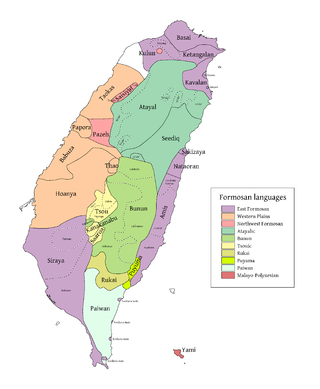Related Research Articles

The Kwa languages, often specified as New Kwa, are a proposed but as-yet-undemonstrated family of languages spoken in the south-eastern part of Ivory Coast, across southern Ghana, and in central Togo. The name was introduced 1895 by Gottlob Krause and derives from the word for 'people' (Kwa) in many of these languages, as illustrated by Akan names.

The Izon people or Izon Otu, otherwise known as the Ijaw people due to the historic mispronunciation of the name Izon, are an ethnic group majorly found in the Niger Delta in Nigeria, with significant population clusters in Bayelsa, in Delta, and in Rivers. They are also found in other Nigerian states like Ondo, and Edo State. Many are found as migrant fishermen in camps as far west as Sierra Leone and as far east as Gabon.
Albay Bikol, or simply Albayanon is a group of languages and one of the three languages that compose Inland Bikol. It is spoken in the southwestern coast of Albay, and northwestern Sorsogon. The region is bordered by the Coastal Bikol and Rinconada Bikol speakers. The latter is the closest language of Albay Bikol and is mutually intelligible. They are both included in Inland Bikol group of languages.

There are over 525 native languages spoken in Nigeria. The Nigerian official language is English, the language of former colonial British Nigeria. As reported in 2003, Nigerian Pidgin was spoken as a second language by 60 million people in Nigeria.
The Izonlanguages, otherwise known as the Ịjọ languages, are the languages spoken by the Izon people in southern Nigeria.
Nkọrọọ is an Ijaw language spoken by about 4,500 ethnic Nkọrọọ in Rivers State, Nigeria.
Kalabari is an Ijo language of Nigeria spoken in Rivers State and Bayelsa State by the Awome people. Its three dialects are mutually intelligible. The Kalabari dialect is one of the best-documented varieties of Ijo, and as such is frequently used as the prime example of Ijo in linguistic literature.
Izon (Ịzọn), also known as (Central–Western) Ijo, Ijaw, Izo and Uzo, is the dominant Ijaw language, spoken by a majority of the Ijaw people of Nigeria.

The Sinicized Papora and Hoanya dialects constituted a Formosan language of Taiwan. They were spoken across the middle western side of the island, around Lishui, Chingshui, Shalu, and inland to Taichung.
Southeast Ijo is an Ijaw language spoken in southern Nigeria. There are two dialects, Nembe (Nimbe) and Akassa (Akaha).
Biseni (Buseni) is one of the coastal languages of Nigeria. According to Ethnologue, it is not fully intelligible with Inland Ijaw.
Oruma is one of three small Inland Ijaw languages of Nigeria. According to Ethnologue, it is not fully intelligible with other varieties of Inland Ijaw.
Kalagan is an Austronesian dialect cluster of the Davao Region of Mindanao in the Philippines. It is also spoken in a few parts of Caraga, still in Mindanao.
Agusan is a Manobo language of northeastern Mindanao in the Philippines.
Vitou is a Papuan language of Indonesia used mainly by older adults.
Ngarigo (Ngarigu) is a nearly extinct Australian Aboriginal language, the traditional language of the Ngarigo people of inland far southeast New South Wales.
Mandaya is an Austronesian language of Mindanao in the Philippines. It may be intelligible with Mansaka.
Central Cagayan Agta, also known as Labin Agta, is an Aeta language of northern Cagayan Province, Philippines. It is spoken by the Aeta Negritos in inland areas located to the east and northeast of Baggao (Ethnologue).
The Kaiama Declaration was issued by the Ijaw Youth Council (IYC) of Nigeria on 11 December 1998 to attribute the political crisis in Nigeria to the struggle for the control of oil mineral resources, while asserting that the degradation of the environment of Ijawland by transnational oil companies and the Nigerian State arise mainly because Ijaw people have been robbed of their natural rights to ownership and control of their land and resources. The council was formed in the town of Kaiama after 5,000 Ijaw people representing over 40 Ijaw clans, chose to articulate their aspirations for the Ijaw people, and to demand an end to 40 years of environmental damage and underdevelopment in the region.
The South South is one of the six geopolitical zones of Nigeria representing both a geographic and political region of the country's eastern coast. It comprises six states – Akwa Ibom, Bayelsa, Cross River, Delta, Edo, and Rivers.
References
- ↑ Okodia at Ethnologue (25th ed., 2022)
